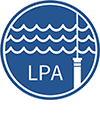Since several of years, major cyanobacterial blooms have been reported at the surface Lake Carheil (Fermont, Quebec) during summer, indicating serious eutrophication issues. The Duplessis watershed organization (OBV Duplessis) has already drawn a global picture of the current situation but only few data are available concerning the past conditions of the lake. However, in order to build an effective water quality recovery plan, it is important to have a good knowledge about the evolutive history of the lake. The aim of the research project is thus to reconstruct the trophic history of the lake from the time before the first arrival of people in the area until today. It will thereby enable to identify the key moments of its history, to link them with events that took place in the catchment area and to determine whether the bearing capacity of the ecosystem has been exceeded or not.
A paleolimnological approach based on the analysis of sediment cores that will be sampled at the bottom of the lake will be employed. The study of the diatom assemblages from different layers will be the main tool. Other analyzes will concern fossils pigments that will be retrieved from the cores in order to establish the succession of the cyanobacteria species in the lake, and the metal concentration of the different layers.
In parallel, the trophic evolution of Lakes Sans Nom and Daviault, which are located upstream from the lake Carheil, could also be studied, just as Lake Perchard which natural state seems to have been preserved and could thus be used as reference.
This research project is important for the environmental preservation and restoration, aquatic ecology and paleolimnology fields. In the context of the Plan Nord of Quebec, it earns a lot of value since it will provide a better idea of the impact that human activities could have on the surrounding aquatic ecosystems in the case of an important development in the north of the province. Moreover, the project will offer relevant information about the past situation of the lake Carheil that OBV Duplessis will be able to use.



